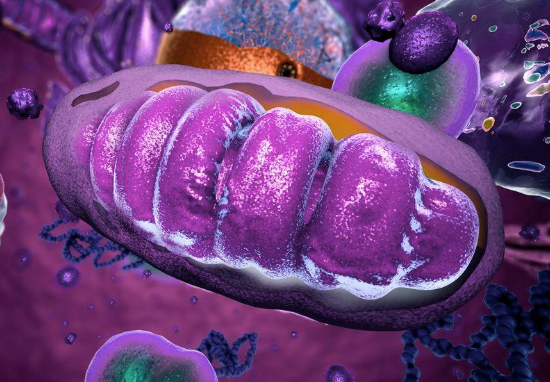Longevity - Eating a Healthy Diet
- Dr. Jon Kaiser

- Apr 17, 2021
- 4 min read

Key #1 – Eating a Healthy Diet
Everything you put in your mouth contributes to how you feel and whether your healing program is moving in the right direction - or the wrong one. Your dietary choices establish the foundation of your health and healing program.
There is no shortage of controversy when it comes to what constitutes a healthy diet. There is also no single “best” diet for all human beings. Some individuals respond really well to a Paleo diet. Others report tremendous benefits with a Ketogenic diet. Many research studies associate the Mediterranean diet with good health longevity.
Your individual health situation and the results of your lab tests (including a microbiome analysis) often points us in the right direction. The process of trial and error also provides valuable information. In fact, some people respond in metabolically diverse ways to exactly the same food.
Here I would like to present some basic dietary principles that I have found strongly support a healthy gut and healthy aging.
Principle #1 – Stay well-hydrated.
Begin drinking clean, filtered water the moment you awaken (at least 8 ounces) and continue drinking it throughout the day. Try to consume at least 1-2 liters of water per day. Carry around a water bottle that’s made from non-BPA plastic.
Principle #2 – Eat 3-4 small to moderate meals per day, avoid snacking between them, and do not eat anything substantial for 2 hours before going to bed.
At each meal, chew slowly and eat only what you require to satisfy your hunger for the next several hours. Do not eat past the point of feeling satisfied. Over-eating will stress your gut’s digestive and energy-generating capacities and can precipitate symptoms such as fatigue, heartburn, abdominal pain and indigestion. Rest for 15 minutes after eating.
Principle #3 – Your diet needs to be natural and minimally processed.
Eating a wide variety of fresh fruits and vegetables, especially those that are consistent with the seasons (e.g. oranges and berries in summer, apples and squashes in winter) is a great starting point. Most people do not consume enough deep green and colored vegetables (e.g. kale, collard greens, spinach, radicchio, red bell peppers, etc.).

Healthy fats include olive oil, avocados, fresh fish, seeds and nuts. Grass fed beef is much leaner and healthier than the marbled beef that comes from corn fed cows. Deep fried foods, canola oil and lard are to be avoided.
The consumption of flour and sugar products promotes fermentation in your gut. After many decades of consuming cakes, cookies, crackers, bread, chips, pizza and breakfast cereals, the bacteria in your gut (the gut microbiome) become highly adept at fermenting these nutrients. Fermentation of sugar and flour products can lead to the release of alcohols, ketones and other fermentation byproducts that promote gas, bloating, fatigue, brain fog and chronic inflammation.
Principle #4 – Miscellaneous Items
Organic Food — Consuming organic food is ideal since many pesticides have a direct toxic effect on the mitochondria. When you are not well, your body does not need the added stress of dealing with toxic chemicals. Organic produce has also consistently been found to contain 20–30% more antioxidant compounds than conventional produce. However, it is impossible to expect most people to consume a 100% organic diet. The most important foods to eat organically are: 1) fresh produce, especially items that are consumed whole (grapes, apples, berries, etc.) 2) organic meats (this will help you to avoid both pesticides and hormones).
Dairy products — Adult mammals no longer have the need for, or the ability to properly digest, large amounts of dairy products. Think of all of the milk, butter, cheese, pizza, yogurt, ice cream and other dairy products in our society’s diet. It’s way more than necessary. Many functional medicine physicians believe that an excess of dairy products contributes to many chronic health problems including heartburn, irritable bowel syndrome, obesity, etc. That said, a moderate intake of high-quality yogurt and sheep or goat cheese, consumed on an intermittent basis, can promote good health and an improved quality of life.
Nuts — Nuts contain a significant amount of protein. However, they also contain a significant amount of fat. Therefore, they are somewhat difficult to digest in large quantities. Consuming a 1-2 handfuls of nuts per day is a very healthful way to consume essential fatty acids (anti-inflammatory) and non-animal protein.
Food Allergies — There are at least two kinds of reactions to foods. One is an acute (immediate) allergic reaction, such as the kind that sends children who are allergic to peanuts to the emergency room with life-threatening symptoms (hives, difficulty breathing, etc.). A second type of reaction is more of a sensitivity whose symptoms can be delayed by a few hours to a day or two. The symptoms of this kind of delayed reaction are more subtle and include fatigue, brain fog, abdominal pain, bloating and diarrhea. The most common foods that can cause a delayed sensitivity reaction are cow’s milk, wheat (gluten), corn, soy, eggs and nuts.
I hope the above information helps you to improve the quality of your diet and the way that you feel. Eating healthy foods promotes the growth of healthy gut microorganisms, which are now known to play an important role in all aspects of health.
Eating a healthy diet is the first and most important key to longevity and healthy aging!
Please forward my Blog to your friends and family!
Keep Hope Alive!
Jon D. Kaiser, M.D.
(415) 381-7655




Comments